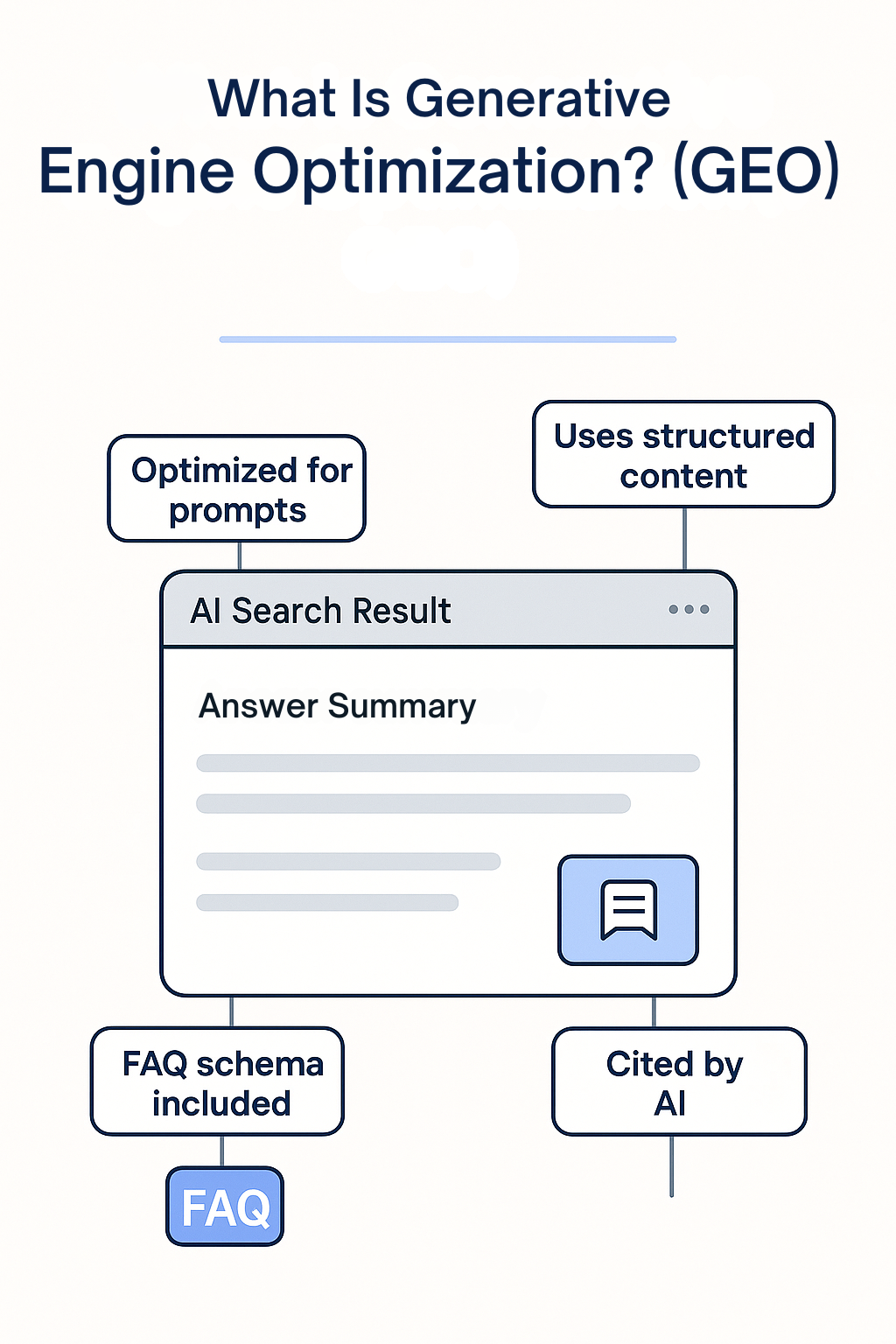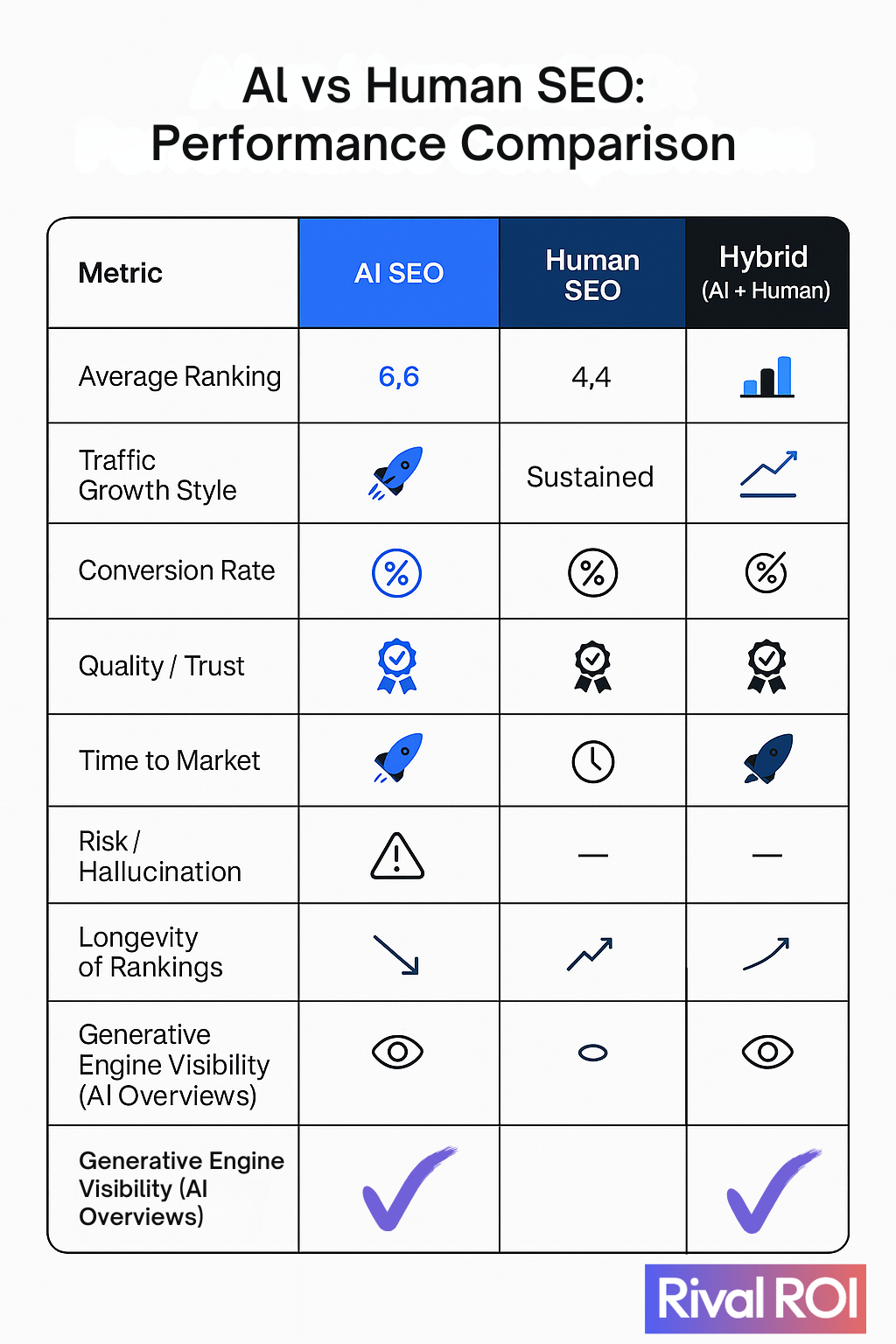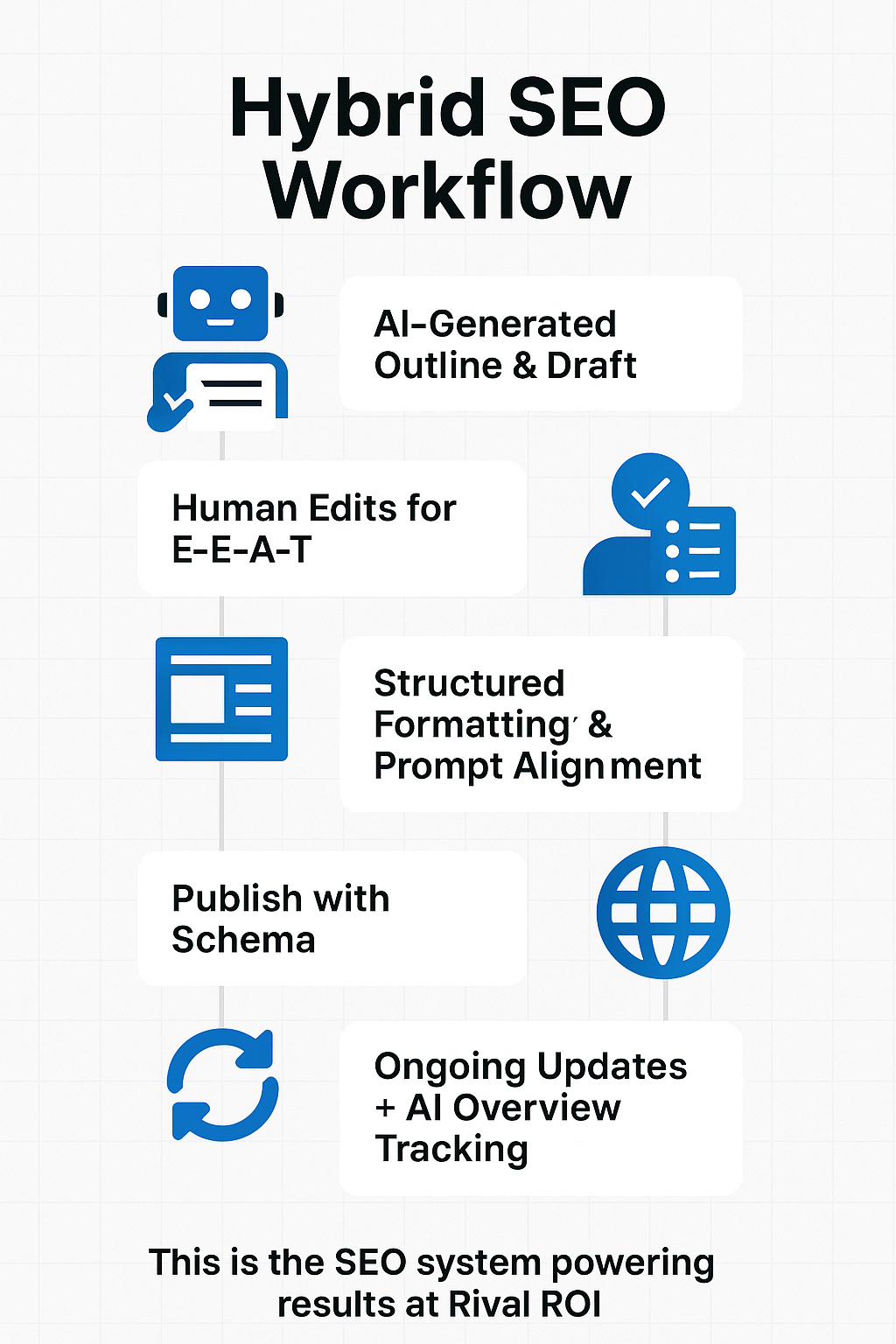
AI SEO Expert
.jpg)
SEO in 2025 looks altogether different from just a few years ago. It used to be about keywords, backlinks, and metadata. Now, we're talking about generative engine optimization, machine learning SEO, prompt optimization, and being visible to AI overviews and generative search results. But with all the hype, what’s actually working? Does AI content generation outperform skilled human writers when it comes to rank, traffic, and ROI?
I dug into real-world experiments, research data, and trusted industry insights to break this down. Here’s what we found—and how “hybrid SEO” is becoming the strongest strategy to survive and thrive.
Think of it like this: you can hire a factory to build identical chairs quickly (AI), or commission a furniture maker to craft a custom chair with personality and character (human). Each has advantages: the factory is fast and affordable; the artisan is soulful and polished. In modern SEO, we need both scalability and sophistication. That’s where AI-assisted SEO, generative AI optimization, and human-in-the-loop SEO processes come into play.
To make informed decisions, we ran a structured comparison on these key performance indicators:

Reboot Online conducted a detailed internal test comparing AI-generated content vs human-authored articles for mid-tail queries. The result?
That 2.2-position gap is no small thing—across 100+ keyword comparisons it was consistent and statistically significant. Put simply: human copy outranked AI by more than two positions on average.
This is backed by their documented test methodology and pairwise results analysis.
MIG's data showed a compelling narrative:
This demonstrates that AI can help you scale—but if you treat it like a shortcut, rankings suffer.
A huge sample of 20,000 Google top-ranked articles showed:
Pretty equal in volume—but dig deeper:
AI is getting into the game—but humans still hold more high-value positions.
WebFX reported generative AI–driven traffic grew 165× faster than traditional SEO traffic since January 2024. Even better? That traffic converted at a 23% higher rate.
It’s a powerful argument for generative AI SEO—but only if it delivers qualified users and not just clicks.
Reboot confirmed a steep truth: AI content can rocket up in ranking fast, but often falls off quickly without human edits or updates. Conversely, human-authored and hybrid pages maintained longer-lasting growth and link equity.
In Jonathan Reboot’s words: “AI can short your journey to Page 1—but humans ensure you stay on Page 1.”
Their funnel for generative AI SEO processes consistently shows:
Hybrid content was cheaper than human-only—and frequently approached the quality of fully human content. But across hundreds of keyword topics, AI+humn combos landed 10–15% fewer top-tier rankings compared to human content published alone.
At Rival ROI, our clients using hybrid SEO workflows typically see:
AI writing tools still make stuff up:
That’s like having a smart assistant who sometimes quotes a source that doesn’t exist—and you get that quote on your brand’s platform.
AI nails grammar and structure—but it fails at:
It’s like comparing a factory piano to a handcrafted Steinway—the notes are there, but the soul isn’t.
These emerging disciplines take keyword research into the AI era:
MIG highlighted prompt optimization and schema-structured content as key differentiators in hybrid success stories.

Here’s how to build an effective AI + human SEO system:

AI SEO as a silo is risky. Pure human is slow. Hybrid? It’s the future.
Automation without accuracy leads to shallow, forgettable content. Purely human is slow and costly. The future of SEO is strategic synergy—smart drafts, rigorous editing, and generative search visibility.
At Rival ROI, we’ve built our SEO playbook around this hybrid model:
This balance drives ranking performance, sustained traffic, and scalable ROI.
Curious how your content stacks up? Want to benchmark your SEO performance in the generative search era? Let’s chat. We can audit your AI‑SEO processes, perform a generative impact assessment, and blueprint a hybrid SEO strategy for long-term growth.